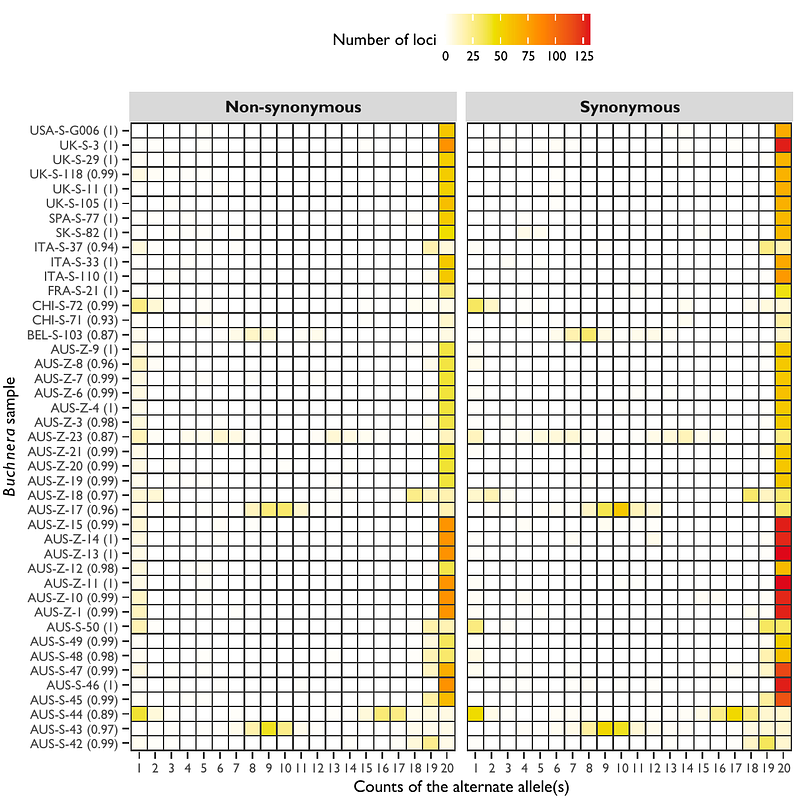'Drifting' Buchnera genomes track the microevolutionary trajectories of their aphid hosts

'Drifting' Buchnera genomes track the microevolutionary trajectories of their aphid hosts
Thia, J. A.; Zhan, D.; Robinson, K.; Umina, P. A.; Hoffmann, A. A.; Yang, Q.
AbstractCoevolution of Buchnera-aphid host symbioses is often studied among species at the macroevolutionary scale. Investigations within species offer a different perspective about how eco-evolutionary processes shape patterns of genetic variation at the microevolutionary scale. Our study leverages new and publicly available whole-genome sequencing data to study Buchnera-aphid host coevolution in Myzus persicae, the peach potato aphid, a globally invasive and polyphagous pest. Across 43 different aphid clonal lineages, we examined patterns of genomic covariation between Buchnera and their aphid host, and considered the distribution of mutations in protein-coding regions of the Buchnera genome. We found Buchnera polymorphism within aphid clones, suggesting that aphids harbour populations of different Buchnera strains. Genetic distance between pairs of Buchnera samples was positively correlated to genetic distance between their hosts, indicating shared evolutionary histories. However, there was no segregation in the genetic variation of both M. persicae and Buchnera with plant host (Brassicaceae and non-tobacco Solanaceae) and there was also no isolation-by-distance within both organisms at global or regional spatial scales. Abundance patterns of non-synonymous mutations were similar to synonymous mutations, and both mutation classes had similar site frequency spectra. We hypothesize that a predominance of neutral processes results in the Buchnera of M. persicae to simply \'drift\' with the evolutionary trajectory of their aphid hosts. Our study presents a unique microevolutionary characterisation of Buchnera-aphid host genomic covariation across multiple aphid clones. This provides a new perspective on the eco-evolutionary processes generating and maintaining polymorphisms in a host species and its obligate endosymbiont.